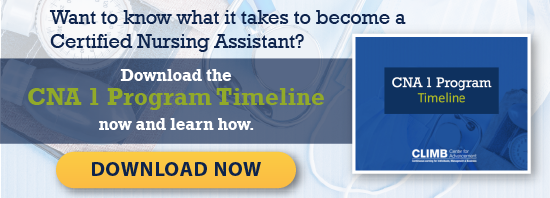
Updated April 20, 2022
Sometimes it’s a thankless job, but as a healthcare professional you know the moments when you are a part of people’s lives. Whether it’s recovering after a surgery, talking to patients' family members, helping a scared patient navigate the healthcare landscape, or providing necessary essentials to those in need. You are there for some of the most vulnerable and painful moments of people’s lives.
How You May Encounter Loss
As a healthcare professional, you may be put in a position to deal with loss more frequently than you would in your personal life. While you may have been extensively trained on how to take a patient’s blood pressure or in the language used in the medical field, many healthcare workers have said they do not feel they receive adequate training in how to deal with the loss they face while on the job. This could be from losing patients to having to help families deal with the loss of a family member.
Five Stages of Grief
Grieving is an individualized experience and how you deal with workplace stress in the healthcare profession will depend on a number of factors including your personality, life experiences, faith and the type of loss.
-
Denial: Thoughts that what has happened is not fair. This is often the first reaction individuals have as they want an explanation for what has happened.
-
Anger: Irrationally blaming others for what has happened.
-
Bargaining: An attempt to rationalize what has happened. Where
-
Depression: An overwhelming emotion that often tells you you are too sad to do anything other than think about what has happened.
-
Acceptance: Coming to terms with what has happened and understanding that it is a part of life.
Tips for Dealing With These Emotions
Be open with others about how you feel. One of the most important things to recognize when you are grieving is to not do it alone. Internalizing your emotions will make them harder to cope with. Instead share with those around you like your friends, family and colleagues who may understand what you are going through and may be dealing with similar emotions.
Take time for yourself. Self-care during a time of loss is critical and you must look at a couple of different factors including physical well-being, recognizing potential triggers and trying to prepare yourself for encountering them.
Misconceptions About Grief
There are many misconceptions about how individuals should handle their emotions surrounding loss and many of them surround the five stages of grief. It is important to keep in mind that there is no one way of coping and no timeline for how long it will take for you to recover from loss. The stages are merely a guideline for you to use while you are recovering from grief.
Being a healthcare professional can be a rewarding occupation but there are challenges along the way. Knowing how to deal with the stress and emotions surrounding loss will help you remain as a contributing member of the industry.





